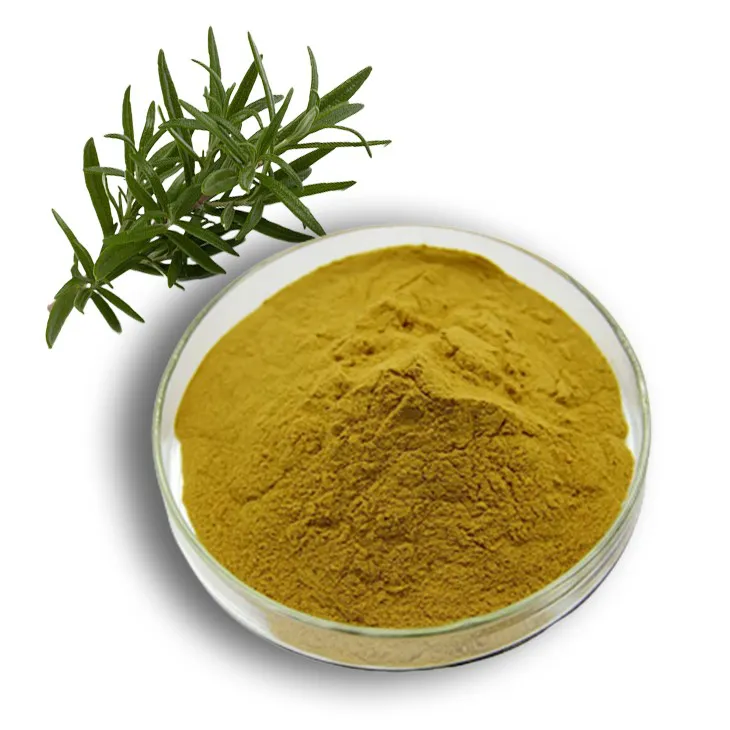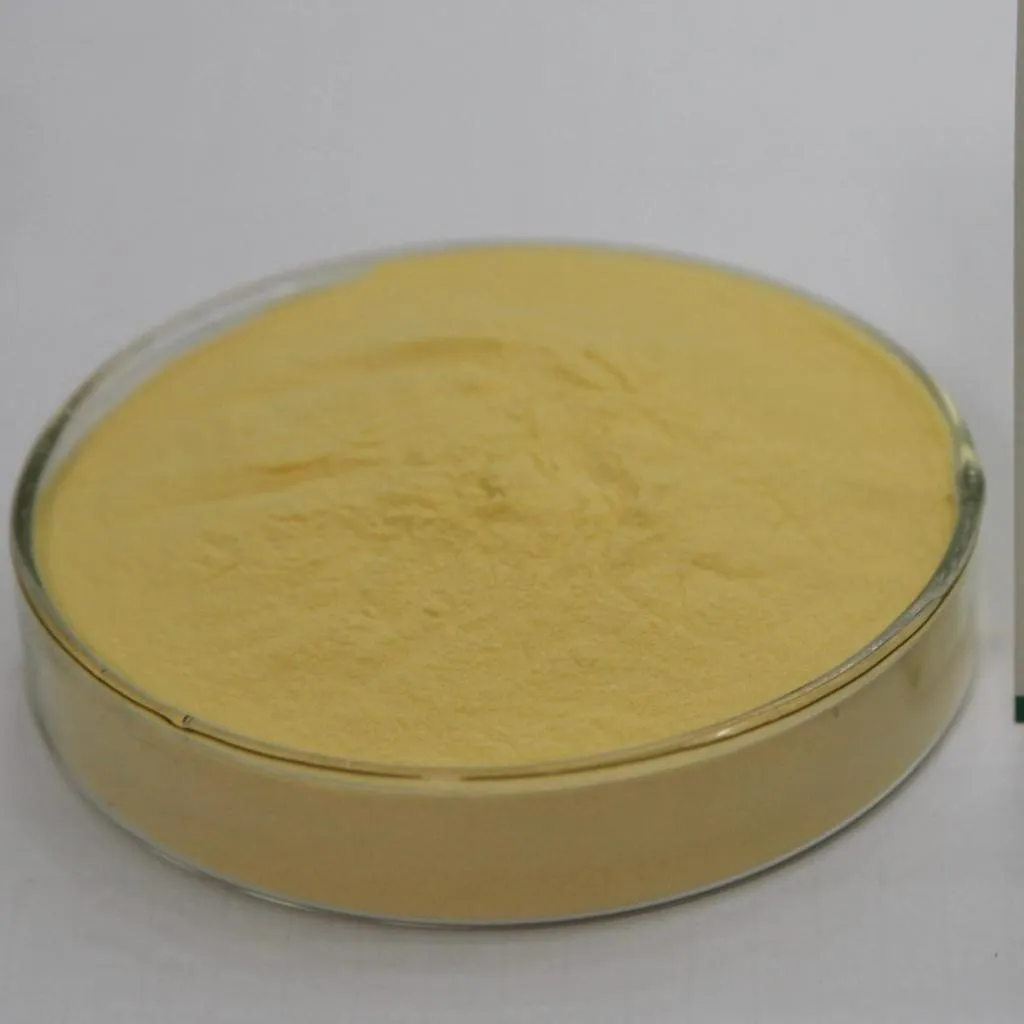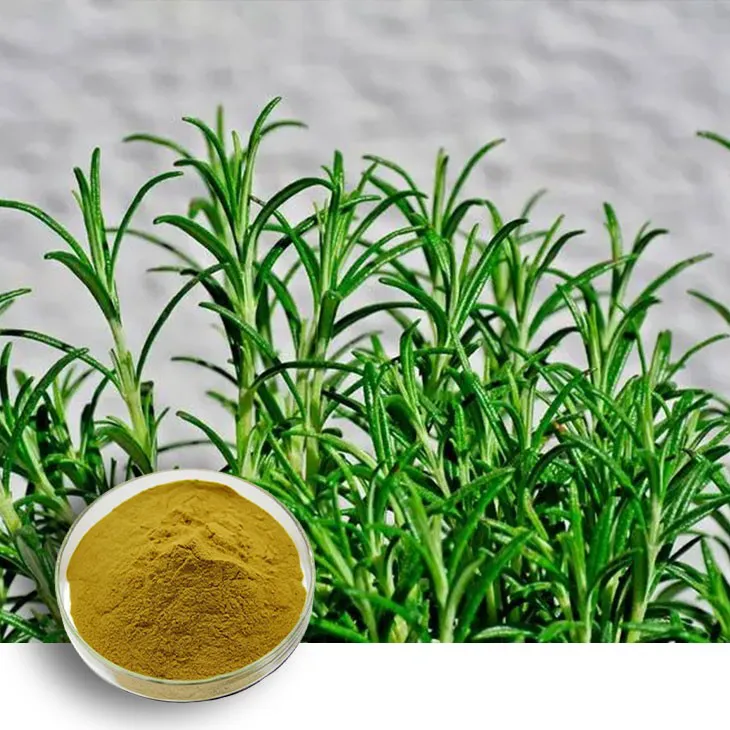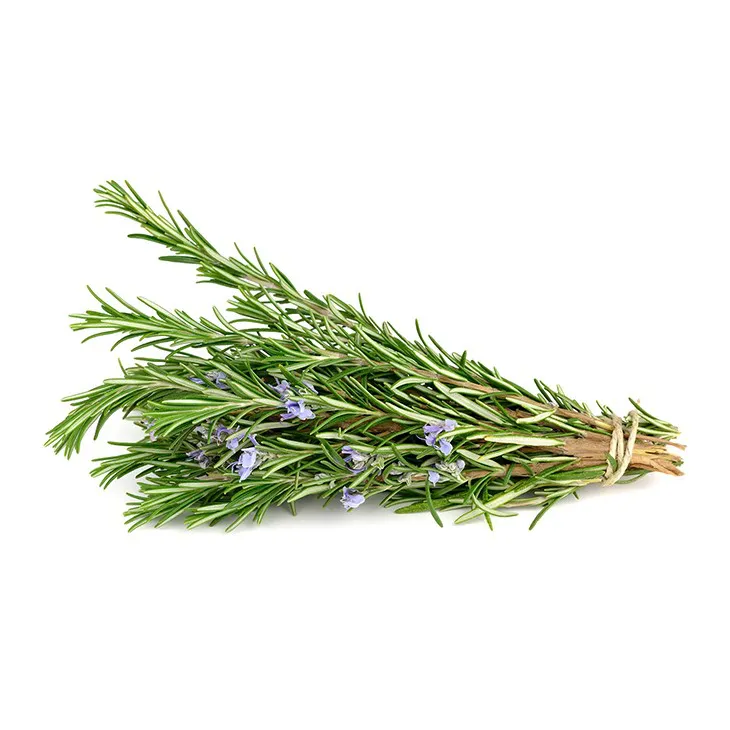- 0086-571-85302990
- sales@greenskybio.com
Rosemary Extract: Nature's Best - Kept Secret.
2024-11-13

Introduction
Rosemary, a fragrant and evergreen herb native to the Mediterranean region, has been used for centuries in various cultures. However, one of its most valuable components, Rosemary extract, has remained somewhat of a "best - kept secret" until recently. Rosemary extract is a concentrated form of the beneficial compounds found in the rosemary plant. It is a complex mixture of bioactive components that are now being recognized for their numerous potential applications.

The Bioactive Components of Rosemary extract
Rosemary extract is rich in several bioactive components that contribute to its remarkable properties.
1. Rosemarinic Acid
Rosmarinic acid is a phenolic compound that is one of the major constituents of rosemary extract. It has been studied for its antioxidant, anti - inflammatory, and antimicrobial properties. In terms of antioxidant activity, it helps to neutralize free radicals in the body. Free radicals are unstable molecules that can cause damage to cells and are associated with various diseases such as cancer, heart disease, and neurodegenerative disorders. By scavenging these free radicals, rosmarinic acid can potentially reduce the risk of such diseases.
2. Carnosic Acid
Carnosic acid is another important component of rosemary extract. It is a diterpene with strong antioxidant capabilities. Studies have shown that carnosic acid can protect cells from oxidative stress. It also has anti - inflammatory effects, which can be beneficial in conditions where inflammation is a contributing factor, such as arthritis or certain skin disorders. Additionally, carnosic acid has been investigated for its potential in preventing cognitive decline and protecting the brain from neurodegenerative diseases like Alzheimer's.
3. Cineole
Cineole, also known as eucalyptol, is a volatile compound present in rosemary extract. It has a characteristic minty aroma. Cineole has been shown to have expectorant and decongestant properties, making it useful in treating respiratory conditions such as coughs and colds. It also has antimicrobial activity, which can help in fighting off infections in the respiratory tract.

Rosemary Extract in the Cosmetic Industry
The cosmetic industry has been increasingly turning to rosemary extract for its multiple benefits.
1. Anti - Aging Properties
One of the most sought - after properties of rosemary extract in cosmetics is its anti - aging effect. The antioxidants present in the extract, such as rosmarinic acid and carnosic acid, help to protect the skin from oxidative damage caused by environmental factors like UV radiation, pollution, and smoking. Oxidative damage can lead to the breakdown of collagen and elastin in the skin, which are essential for maintaining skin elasticity and firmness. By preventing this damage, rosemary extract can reduce the appearance of wrinkles, fine lines, and sagging skin.
Moreover, rosemary extract has anti - inflammatory properties that can soothe irritated skin and reduce redness. It can also improve skin tone and texture, giving the skin a more youthful and radiant appearance.
2. Hair Care
In hair care products, rosemary extract has also found a significant place. It can stimulate hair growth by improving blood circulation to the scalp. The antioxidants in the extract can also protect the hair follicles from damage caused by free radicals. This can help in preventing hair loss and promoting thicker, healthier hair. Additionally, rosemary extract can add shine to the hair and improve its overall condition.

Rosemary Extract in the Culinary World
Rosemary has long been a staple in the culinary world, and its extract is no exception.
1. Flavor Enhancement
Rosemary extract imparts a unique and pleasant flavor to food. It has a warm, earthy, and slightly minty taste that can enhance the flavor of a wide variety of dishes. In meat dishes, such as roasted chicken or lamb, it can add depth and complexity to the flavor. It is also a great addition to vegetable dishes, soups, and stews, where it can bring out the natural flavors of the ingredients.
2. Preservation
Due to its antimicrobial properties, rosemary extract can also be used as a natural preservative in food. It can inhibit the growth of bacteria, yeasts, and molds, thereby extending the shelf life of food products. This is especially useful in the development of natural and clean - label food products, where consumers are increasingly demanding products free from synthetic preservatives.

Traditional and Modern Medicinal Uses of Rosemary Extract
Rosemary extract has a long history of medicinal use, both in traditional medicine and in modern research.
1. Traditional Medicinal Uses
In traditional medicine, rosemary was used to treat a variety of ailments. It was believed to have digestive - stimulant properties and was used to relieve indigestion, flatulence, and stomach cramps. It was also used topically to treat skin conditions such as eczema and psoriasis. Additionally, rosemary was thought to have a positive effect on memory and cognitive function, and was often used to improve mental clarity.
2. Modern Medicinal Research
Modern research has further explored the medicinal potential of rosemary extract. Studies have shown that it may have potential in treating diabetes by improving insulin sensitivity. It has also been investigated for its anti - cancer properties, although more research is needed in this area. The anti - inflammatory and antioxidant properties of rosemary extract make it a promising candidate for the treatment of various inflammatory diseases, such as rheumatoid arthritis and inflammatory bowel disease.
Conclusion
Rosemary extract is truly a nature's wonder with a wide range of potential applications. From the cosmetic industry, where it offers anti - aging and hair - care benefits, to the culinary world, where it enhances flavor and acts as a natural preservative, and in the field of medicine, both in traditional and modern contexts, it holds great promise. As research continues to uncover more about its bioactive components and their functions, we can expect to see even more innovative uses of rosemary extract in the future. It is time for this "best - kept secret" to be fully explored and utilized for the betterment of human health and well - being.
FAQ:
What are the bioactive components in rosemary extract?
Rosemary extract contains various bioactive components. Some of the key ones include rosmarinic acid, carnosic acid, and carnosol. Rosmarinic acid has antioxidant and anti - inflammatory properties. Carnosic acid and carnosol are also powerful antioxidants that contribute to the overall beneficial effects of the extract.
How does rosemary extract work in anti - aging in the cosmetic industry?
In the cosmetic industry, rosemary extract is effective in anti - aging due to its antioxidant properties. Antioxidants help combat free radicals, which are unstable molecules that can damage skin cells and contribute to premature aging. The bioactive components in rosemary extract neutralize these free radicals, reducing oxidative stress on the skin. This can result in less wrinkling, improved skin elasticity, and a more youthful appearance.
What are the ways rosemary extract enhances flavor in the culinary world?
Rosemary extract adds a unique and pleasant flavor to various culinary creations. It has a distinct herbal, slightly pine - like aroma. In cooking, it can be used to season meats, especially lamb, where it imparts a rich and earthy flavor. It also goes well with roasted vegetables, adding depth and complexity to their taste. Additionally, it can be used in marinades, sauces, and dressings to enhance the overall flavor profile.
What are the traditional medicinal uses of rosemary extract?
Traditionally, rosemary extract has been used for several medicinal purposes. It has been used to aid digestion, as it can stimulate the production of digestive juices. It was also believed to have a positive effect on memory and concentration, and was sometimes used to relieve headaches. In some traditional medicine practices, it has been used topically for treating minor skin irritations and wounds due to its anti - inflammatory properties.
What are the modern medicinal uses of rosemary extract?
Modern research has explored additional medicinal uses for rosemary extract. It is being studied for its potential in managing neurodegenerative diseases, as its antioxidant and anti - inflammatory properties may help protect brain cells. There is also interest in its role in cardiovascular health, as it may help reduce inflammation in blood vessels and lower blood pressure. Additionally, its antibacterial and antifungal properties are being investigated for potential use in treating infections.
Related literature
- The Bioactive Compounds and Health - Promoting Properties of Rosemary (Rosmarinus officinalis L.)"
- "Rosemary Extract: A Promising Natural Antioxidant for Cosmetic and Pharmaceutical Applications"
- "The Role of Rosemary in Culinary and Medicinal Traditions"
- ▶ Hesperidin
- ▶ citrus bioflavonoids
- ▶ plant extract
- ▶ lycopene
- ▶ Diosmin
- ▶ Grape seed extract
- ▶ Sea buckthorn Juice Powder
- ▶ Beetroot powder
- ▶ Hops Extract
- ▶ Artichoke Extract
- ▶ Reishi mushroom extract
- ▶ Astaxanthin
- ▶ Green Tea Extract
- ▶ Curcumin Extract
- ▶ Horse Chestnut Extract
- ▶ Other Problems
- ▶ Boswellia Serrata Extract
- ▶ Resveratrol Extract
- ▶ Marigold Extract
- ▶ Grape Leaf Extract
- ▶ blog3
-
Cranberry Plants and Skin - care Products.
2024-11-13
-
Lemon Juice Powder
2024-11-13
-
Cassia Seed Extract
2024-11-13
-
Lavender Extract
2024-11-13
-
Rose Hip Extract
2024-11-13
-
Sophora Japonica Flower Extract
2024-11-13
-
Tormentil Extract
2024-11-13
-
Quercetin
2024-11-13
-
Eyebright Extract
2024-11-13
-
Grape Leaf Extract
2024-11-13
-
Gynostemma pentaphyllum extract
2024-11-13





















